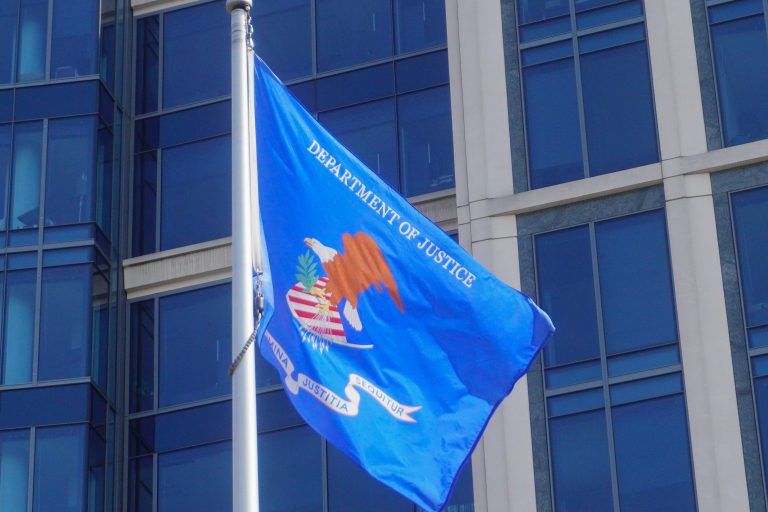President Joe Biden’s son will be indicted on gun charges stemming from his drug use.
Special Counsel David Weiss said on Wednesday his office intends to file charges against Hunter Biden before the end of the month. He referenced potential violations of federal law for both lying on the background check Hunter completed to obtain a gun and his possession of it while allegedly using crack cocaine.
“The Speedy Trial Act requires that the Government obtain the return of an indictment by a grand jury by Friday, September 29, 2023, at the earliest. The Government intends to seek the return of an indictment in this case before that date,” Weiss’s office wrote in a court filing.
The legal filing, first reported by CNN, indicates Hunter’s long-running legal saga may be far from over. The notice that felony charges are imminent sets up a high-profile fight over the conduct of the President’s son as he pursues re-election next year. It also creates a showdown over an increasingly uncertain aspect of federal firearms law.
Hunter Biden previously agreed to admit to the facts underlying the potential charges, forfeit his right to own firearms, and agree to a pre-trial diversion program in order to avoid jail time.
“Biden shall waive indictment in relation to the information filed in the United States District Court for the District of Delaware on June 20, 2023, which charges Biden with one count of knowingly possessing a firearm while then an unlawful user of or person addicted to a controlled substance, in violation of Title 18, United States Code, Sections 922(g)(3) and 924(a)(2) (2018),” the proposed agreement said. “The United States agrees that if Biden complies with all of his respective obligations under the agreement, then the United States, within thirty (30) days after the expiration of the Diversion Period, will file a motion with the Court seeking the dismissal of the Information.”
However, that deal fell apart when U.S. District Judge Maryellen Noreika questioned the novel way it attempted to link a guilty plea on two tax misdemeanor charges with the pre-trial diversion program. The prodding revealed a significant gap in understanding between the two sides, ultimately leading to the agreement’s dissolution.
“The bottom line is that the structure of the deal was convoluted and poorly thought out, and the connection between the two is weirdly done,” Ken White, a former federal prosecutor and current co-host of the legal podcast Serious Trouble, told The Reload at the time.
Hunter Biden’s legal woes stem from a 2018 incident where a revolver he purchased was recovered from a dumpster behind a grocery store near his home in Delaware. The gun was turned over to local police, who traced it back to Biden and discovered it was his then-girlfriend who threw the gun in the trash out of apparent concern for Hunter’s safety. The incident first made news when Politico reported in 2021 that the Secret Service had attempted to retrieve the background check form Hunter had filed out to buy the gun but was rebuffed by the dealer because the agency wasn’t authorized to take the documents.
Shortly after that news broke, Hunter went on a media tour promoting his memoir “Beautiful Things.” In that book, he admitted to using crack cocaine “every 15 minutes” during the period of time when he bought and owned the gun. The statement of facts Hunter was set to agree to during the plea deal appeared to reference that very public confession, and he admitted the book was the basis for that during the failed plea hearing with Judge Noreika.
The case against Hunter will be hard to predict if it gets to trial. South Texas College of Law Professor Dru Stevenson, an expert on drug-user-in-possession charges, said the charge Biden is facing rarely gets used in a standalone prosecution–estimating just 200 convictions a year nationwide for a charge that could be brought against many more.
“As a general matter, it is extraordinarily rare to see cases where 922(g)3 is brought as a standalone charge – the circumstances of the arrest that led to the charge typically involve a drug bust or drug-related violence, so it is one of several charges in the case,” Stevenson told The Reload in June.
Still, several cases involving the drug user gun prohibition have received renewed attention in recent months because the Supreme Court’s new standard for deciding Second Amendment issues has cast doubt on the constitutionality of the underlying law. Jared Michael Harrison was prosecuted in federal court for possessing a gun while being a user of marijuana after both were found in his car during a traffic stop in May 2022. In February 2023, U.S. District Judge Patrick Wyrick ruled in Harrison’s favor and found the law violates the Second Amendment. In April, U.S. District Judge Kathleen Cardone threw out a case against Paola Connelly for using marijuana and owning guns. A Fifth Circuit panel agreed with Judge Cardone just last month.
Not every federal judge has come down the same way, though. Last week, U.S. District Judge C.J. Williams upheld the drug user gun prohibition in another case against a marijuana user found with a gun.
Hunter’s legal problems have continued to translate into political problems for his father. Former President Donald Trump, who is facing his own federal prosecutions but remains the frontrunner to face Joe Biden in 2024, has accused him of ensuring special treatment for his son. Gun-rights groups have also labeled President Biden a hypocrite for pursuing ever-stricter gun laws, as his son has been accused of breaking the ones already on the books.
Any potential United States v. Biden gun case is likely to up the ante of the legal fight over federal gun laws. In May, The New York Times reported Hunter Biden’s legal team has threatened to use a Second Amendment defense and call President Biden as a witness if charges are brought. That could turn the news value of the case up even further as it morphs into a high-stakes showdown between the President and his son over the outer boundaries of Second Amendment protections that may end up before the Supreme Court.






